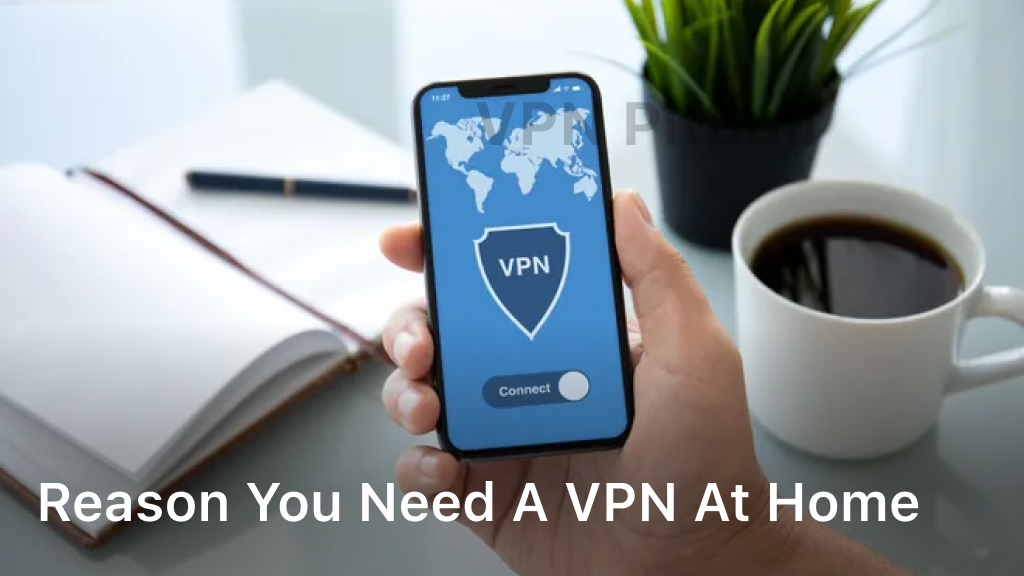5 Reasons You Need A VPN At Home
Welcome to our article on the reason you need a VPN at home. In today’s digital age, online privacy has become increasingly important. With the rise of cyber threats and data breaches, it is crucial to take measures to protect your personal information. One effective solution is to use a VPN, or Virtual Private Network.
A VPN helps create a secure connection between your device and the internet by encrypting your data and routing it through a remote server. This not only protects your online privacy but also ensures secure internet browsing and prevents unauthorized access to your sensitive information.
By using a VPN at home, you can enjoy added security, anonymity, and freedom while using the internet. Whether you’re streaming content, accessing public Wi-Fi networks, or simply browsing the web, a VPN can help safeguard your data from prying eyes and potential cyber threats.
In the following sections, we will delve deeper into the benefits of using a VPN, how it enhances internet security at home, and its role in protecting your online privacy. Stay tuned to discover why a VPN is a valuable tool for anyone concerned about maintaining their privacy and security in the digital world.

Benefits of Using a VPN
When it comes to securing your home network, using a VPN has numerous advantages. Let’s explore the benefits of using a VPN for your online activities.
1. Protecting Your Data
One of the key benefits of using a VPN is that it encrypts your data, keeping it safe from prying eyes. Whether you’re sending sensitive information, accessing confidential documents, or simply browsing the web, a VPN ensures that your data remains encrypted and secure.
2. Securing Your Internet Connection
A VPN adds an extra layer of security to your home network by creating a secure tunnel for your internet traffic. This means that your online activities and personal information are protected against hacking, eavesdropping, and other cyber threats.
3. Anonymity While Browsing
By using a VPN, you can browse the web with anonymity. Your IP address is masked, making it difficult for websites, advertisers, and other third parties to track your online activities. This enhances your privacy and helps prevent targeted advertising and data profiling.
4. Accessing Geo-Restricted Content
A VPN allows you to bypass geographical restrictions and access content that may be blocked in your region. With a VPN, you can stream your favorite movies and TV shows, access restricted websites, and enjoy a truly global internet experience.
5. Safe Public Wi-Fi Usage
When connecting to public Wi-Fi networks, such as those in coffee shops or airports, there is an increased risk of hackers intercepting your data. However, with a VPN, your connection is encrypted, ensuring that your sensitive information remains protected even when connected to unsecured networks.
These are just a few of the many benefits of using a VPN for your home network. With enhanced data security, privacy, and freedom to access content, a VPN is an indispensable tool for today’s online world.
Enhancing Internet Security at Home
When it comes to internet security at home, protecting your data is of utmost importance. One effective way to achieve this is by using a VPN (Virtual Private Network). With a VPN, you can ensure secure internet browsing and safeguard your sensitive information from potential threats.
A VPN plays a crucial role in enhancing internet security by encrypting your data. By encrypting your online activities, a VPN creates a secure and private connection that prevents unauthorized access to your personal information.
Another significant advantage of using a VPN is its ability to prevent cyber attacks. By connecting to the internet through a VPN, your data traffic is routed through a secure server, making it difficult for cybercriminals to intercept and exploit your information.
Moreover, a VPN is particularly beneficial when using public Wi-Fi networks. Public Wi-Fi networks are notorious for their vulnerability to hacking and data theft. However, with a VPN, you can confidently connect to public Wi-Fi hotspots, knowing that your data is encrypted and protected from prying eyes.
To further emphasize the importance of a VPN in enhancing internet security at home, consider the following:
- A VPN masks your IP address, making it virtually impossible for websites, advertisers, and other third parties to track your online activities.
- By utilizing a VPN, you have the freedom to browse the internet anonymously, without worrying about your online privacy being compromised.
- A VPN protects your data from your Internet Service Provider (ISP), ensuring that they cannot monitor or sell your personal information.
The Value of Internet Security at Home
When it comes to protecting your personal information and ensuring a safe online experience at home, investing in a VPN is a wise decision. With the ever-increasing threats of cybercrime and data breaches, implementing measures to safeguard your data is essential.
By employing a VPN, you can enjoy peace of mind knowing that your internet connection is secure and your data is protected. Whether you are browsing the web, accessing sensitive information, or conducting online transactions, a VPN provides an extra layer of security that cannot be ignored.
Comparing VPN Providers for Internet Security at Home
| VPN Provider | Features | Price | Rating |
|---|---|---|---|
| ExpressVPN | Fast speeds, strong encryption, global server network | $12.95/month | 9.5/10 |
| NordVPN | Double VPN, strict no-logs policy, affordable pricing | $11.95/month | 9.2/10 |
| Surfshark | Unlimited devices, ad-blocking feature, affordable plans | $12.95/month | 9.0/10 |
Table: A comparison of top VPN providers in terms of features, pricing, and ratings.
By selecting a reputable VPN provider, you can ensure that your internet security at home is effectively strengthened, providing you with the confidence to browse the web and protect your valuable data without compromising your privacy.
Understanding VPN for Online Privacy
When it comes to safeguarding your online privacy, using a VPN is crucial. A VPN, or Virtual Private Network, creates a secure and encrypted connection between your device and the internet. It acts as a protective shield, ensuring that your personal information remains private and secure.
With a VPN, you can protect your online activities from data tracking, ISP monitoring, and surveillance. Your internet traffic is routed through a remote server, making it difficult for third parties to track or monitor your online presence.
One of the main benefits of using a VPN for online privacy is the anonymity it provides. By connecting to a VPN server, your IP address is masked, making it virtually impossible for anyone to trace your online activities back to you.
In addition to enhancing your privacy, a VPN also protects your data from potential threats. When connected to a public Wi-Fi network, such as in a coffee shop or airport, your data becomes vulnerable to hackers. However, a VPN encrypts your internet connection, ensuring that your sensitive information remains encrypted and secure.
Furthermore, using a VPN allows you to bypass geo-restrictions and access content that may be blocked or unavailable in your region. By connecting to a server in a different country, you can browse the internet as if you were physically located there. This feature not only adds an extra layer of privacy but also gives you the freedom to explore a global internet.
To better understand the significance of a VPN for online privacy, let’s take a closer look at how it protects your personal information:
| Data Tracking and Logging | ISP Monitoring | Surveillance |
|---|---|---|
| A VPN prevents websites and advertisers from tracking your online activities and collecting your data. | Your Internet Service Provider (ISP) cannot monitor or log your browsing activities when you’re connected to a VPN. | A VPN masks your IP address and encrypts your data, making it difficult for surveillance agencies to monitor your online communications. |
Conclusion
In today’s digital age, online privacy and security have become crucial concerns. Thankfully, a VPN (Virtual Private Network) serves as a powerful tool to protect your data and ensure a safe browsing experience from the comfort of your home.
By encrypting your internet connection, a VPN shields your sensitive information from potential cyber threats and unauthorized access. It creates a secure tunnel between your device and the websites you visit, making it virtually impossible for hackers or eavesdroppers to intercept your data.
Furthermore, a VPN allows you to browse the internet anonymously. It masks your IP address, replacing it with that of the VPN server location you choose. This not only prevents websites and online services from tracking your online activities but also safeguards your identity and protects you from targeted advertisements.
Investing in a reliable VPN service provider is a wise decision. It grants you the peace of mind and freedom to explore the online world without compromising your privacy. So, take control of your online presence, secure your data, and enjoy a worry-free internet experience with a VPN.
FAQ
Why do I need a VPN at home?
Using a VPN at home is essential for several reasons. Firstly, it provides an additional layer of security by encrypting your internet traffic, making it harder for hackers or snoopers to access your personal data. Secondly, a VPN helps to protect your online privacy by hiding your IP address and location from websites or online services that may track your activities. Finally, a VPN allows you to access geo-restricted content such as streaming services or websites that may not be available in your region.
What are the benefits of using a VPN?
There are numerous benefits to using a VPN for your home network. Firstly, it ensures the security of your data by encrypting your internet connection, making it virtually impossible for anyone to intercept or access your information. Secondly, a VPN can provide anonymity while browsing the web, as it masks your IP address and location. This helps protect your online activities from being tracked or monitored by third parties. Lastly, a VPN allows you to access region-restricted content, giving you more freedom and choices when it comes to online browsing and streaming.
How does a VPN enhance internet security at home?
A VPN enhances internet security at home in several ways. Firstly, it encrypts your data, making it unreadable to anyone trying to intercept it. This is particularly important when using public Wi-Fi networks, as these are more vulnerable to data breaches. Secondly, a VPN protects you from cyber attacks by creating a secure tunnel between your device and the VPN server, safeguarding your connection from potential threats. Lastly, a VPN ensures safe browsing by preventing websites or online services from tracking your activities and collecting your personal information.
How can a VPN protect my online privacy?
A VPN is an effective tool for protecting your online privacy. By routing your internet traffic through a VPN server, it masks your IP address and assigns you a new one. This makes it difficult for websites, online services, or even your internet service provider (ISP) to track your online activities. Moreover, a VPN encrypts your data, ensuring that it remains secure and private. This is particularly crucial when accessing sensitive information or performing online transactions, as it prevents your data from being intercepted or compromised.




